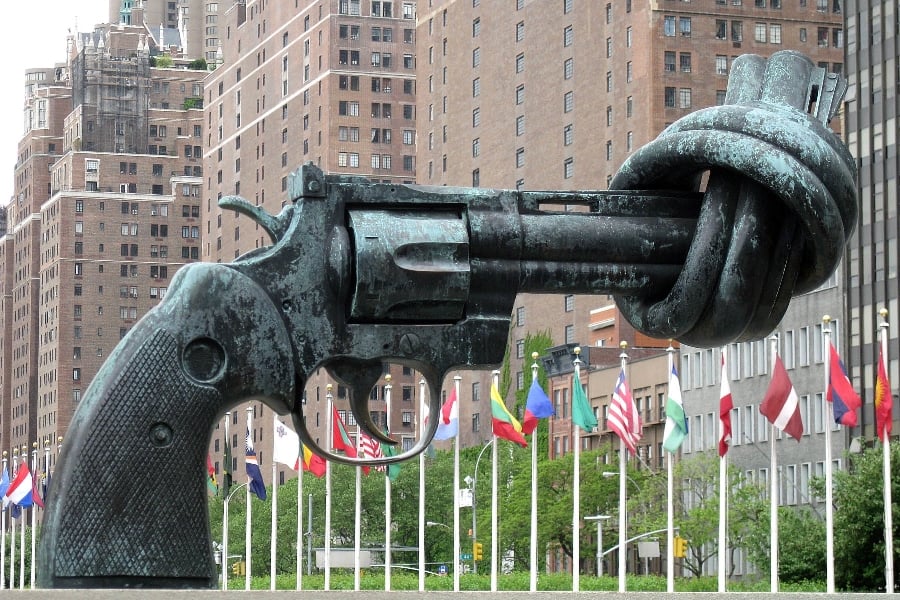Good work! Out of the 1,754 active nations capable of attacking you, you have 552.57% more than the average number of Nukes
Nuclear deterrence theory
According to Kenneth Waltz, there are three requirements for successful nuclear deterrence:
Part of a state's nuclear arsenal must appear to be able to survive an attack by the adversary and be used for a retaliatory second strike
The state must not respond to false alarms of a strike by the adversary
The state must maintain command and control
The stability–instability paradox is a key concept in rational deterrence theory. It states that when two countries each have nuclear weapons, the probability of a direct war between them greatly decreases, but the probability of minor or indirect conflicts between them increases.This occurs because rational actors want to avoid nuclear wars, and thus they neither start major conflicts nor allow minor conflicts to escalate into major conflicts—thus making it safe to engage in minor conflicts.
As opposed to the extreme mutually assured destruction form of deterrence, the concept of minimum deterrence in which a state possesses no more nuclear weapons than is necessary to deter an adversary from attacking is presently the most common form of deterrence practiced.
In nuclear strategy, minimal deterrence, also known as minimum deterrence and finite deterrence, is an application of deterrence theory in which a state possesses no more nuclear weapons than is necessary to deter an adversary from attacking. Pure minimal deterrence is a doctrine of no first use, holding that the only mission of nuclear weapons is to deter a nuclear adversary by making the cost of a first strike unacceptably high. To present a credible deterrent, there must be the assurance that any attack would trigger a retaliatory strike. In other words, minimal deterrence requires rejecting a counterforce strategy in favor of pursuing survivable force that can be used in a countervalue second strike.
Minimal deterrence represents one way of solving the security dilemma and avoiding an arms race. Decision-makers often feel pressured to expand their arsenals when they perceive them to be vulnerable to an adversary's first strike, especially when both sides seek to achieve the advantage. Eliminating this perceived vulnerability reduces the incentive to produce more and advanced weapons.
Nuclear peace
Nuclear peace is a theory of international relations which argues that the presence of nuclear weapons may in some circumstances decrease the risk of crisis escalation, since parties will seek to avoid situations that could lead to the use of nuclear weapons. Proponents of nuclear peace theory therefore believe that controlled nuclear proliferation may be beneficial for global stability.
A nuclear peace results if the costs of war are unacceptably high for both sides. In a two-sided conflict in which both sides have a second-strike capability, defense becomes impossible and so it is the very prospect of fighting the war, rather than the possibility of losing it, that induces restraint.
In a condition of mutually assured destruction, there are civilian "hostages" on both sides, which facilitates cooperation by acting as an informal mechanism of contract enforcement between states.
No first use
In nuclear ethics and deterrence theory, No first use (NFU) refers to a type of pledge or policy wherein a nuclear power formally refrains from the use of nuclear weapons or other weapons of mass destruction in warfare, except for as a second strike in retaliation to an attack by an enemy power using WMDs. Such a pledge would allow for a unique state of affairs in which a given nuclear power can be engaged in a conflict of conventional weaponry while it purposefully foregoes any of the strategic advantages of nuclear weapons, provided the enemy power does not possess or utilize any such weapons of their own. The concept is primarily invoked in reference to nuclear mutually assured destruction but has also been applied to chemical and biological warfare
Nuclear blackmail is a form of nuclear strategy in which an aggressor uses the threat of use of nuclear weapons to force an adversary to perform some action or make some concessions. It is a type of extortion that is related to brinkmanship.
Nuclear blackmail is usually ineffective against a rational opponent that has or is an ally of a power with assured destruction capability. If the opponent has nuclear weapons, nuclear blackmail becomes a threat of conflict escalation. In that situation if the opponent refuses to respond, one's choices are withdrawal of the threat of nuclear attack, incurring a major loss of prestige (both in domestic and international politics), or carrying out the threat resulting in mutual nuclear destruction.











